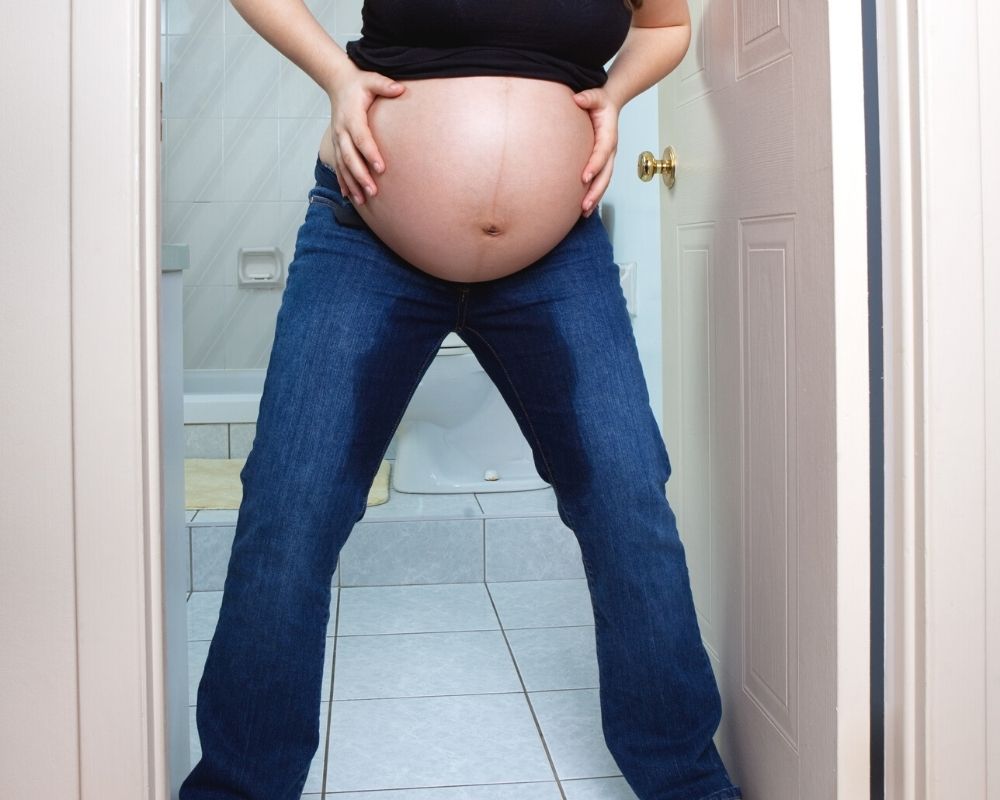For all soon-to-be-parents, these are some signs that your baby is on the way.
Most parents are understandably confused about signs of labour as many of the signs are vague and misleading. Here at Bao Ma we have listed down the most telling signs that labour is on the way. However, bear in mind that these symptoms may not necessarily happen in any particular order. You may some of the symptoms simultaneously on the same day or a few days apart.
You Experience Vaginal Pain

Pain in the vaginal area is an early indication of labour. It can happen weeks before labour actually happens, so please take note, new mothers! The sensation is akin to shooting pains in the vagina and pelvis. This is due to the baby changing position as they move lower down into the birth canal.
You Have Bloody Discharge

If you notice an increase in vaginal discharge, this is a good sign that you may be going into labour. The cervix is closed and covered with mucus during the entire duration of pregnancy. This is known as the operculum, or mucus plug, and is your body’s way of protecting the baby by preventing bacteria from entering the womb. The texture of the discharge is similar to uncooked egg white and may come up to a teaspoonful size. When the mucus plug dislodges, this means that the cervix has begun to soften and dilate to prepare for labour. The discharge color ranges from brown (due to old blood) or pinkish in color.
The pink color is due to the rupture of blood vessels along the cervix surface as it continues to expand. This discharge can occur as early as 2 weeks before labour. If the discharge is heavy and tinged with bright red blood, it means that your body has gone into labour.
You Have Lower Back Pain

This symptom may be confusing for some new mothers because plenty of pregnant women experience lower back pain at some point during their pregnancy. In this case, you may start noticing a dull ache in your lower back that feels similar to period pain. This is because when labour happens, the baby goes down the birth canal with the face leaning against the mother’s spine. When the pain becomes more unbearable, then it is likely that labour is near.
You Are Experiencing More Braxton Hicks Contractions

Braxton Hicks contractions refer to the uterus contractions. They often practice contractions as your hormones change and your cervix becomes more flexible. Some pregnant women may experience these contractions in the early stages of pregnancy and it does not necessarily indicate labour is near, but that a woman could be exhausted or dehydrated. But if you notice cramps and pain with increased Braxton Hicks contractions, then it could be a sign of early labour.
You Are Frequenting the Toilet More Often

Plenty of new mothers notice that as their due date draws near, they feel the urge to pass motion more often than not. Diarrhoea or loose bowel movement is not uncommon as well. This is the body’s signal to make way for the baby to come through. The emptying of bowels is also to ensure the uterus is able to contract properly. Other symptoms may include vomiting or indigestion before labour contractions start.
Your Bump Dislodges or Drops

You may feel a pressure change as your baby drops lower into the pelvic region. In other words, your baby’s head has engaged with your pelvis and is in the correct position for childbirth. As your baby’s weight is no longer pressing on your diaphragm, you may find it easier to breathe as a result. If you have been experiencing heartburn, this should stop as well. Bump dropping may happen a few weeks before labour or just when labour contractions start.
Your Energy Level Changes

Some women feel more energized and awake before they go into labour, while some women feel their energy levels drop and actually sleep better! Feeling increasingly emotional is also common – many mothers report feeling overwhelmed and poor sleep just a few days before labour.
Your Water Breaks

80% of women report having regular contractions and going into labour within 12 hours after their water has broken. However, instead of having amniotic fluid gushing out dramatically like in the movies, in real life, it will likely be a slow, steady leak as your baby’s head prevents the fluid from leaking out all at once. However, if your water has broken and you have yet to go into labour by 24 hours, doctors will usually artificially induce labour. This is because the risk of infection is higher once the amniotic sac has burst and bacteria are able to enter the womb.
With that being said, every pregnancy is different, and there is really no sure-fire way of predicting when labour will start. Despite contrary opinion, most women do not go into labour suddenly without warning. Your body will send cues that the big day is close, so pack the bare necessities and be ready to head to the hospital when you see these signs!


